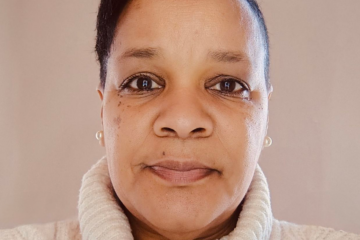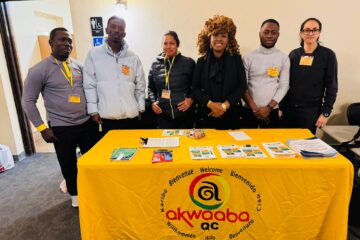As told to Mathany Ahmed
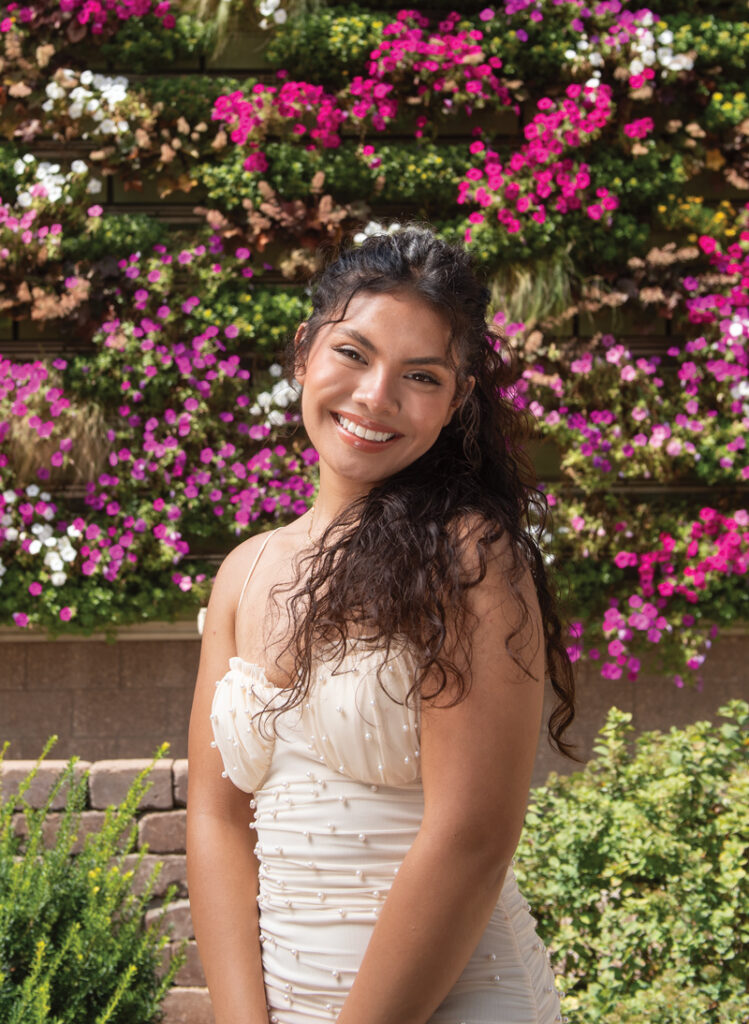
Natalie Andrade founded an organization to support the needs of Latina students in 2020 and helped them tell their stories for the first time. She advocated for survivors of sexual abuse, with a focus on the particular challenges of Latina survivors. Last year, she shared her thoughts with legislators at the state Capitol.
Her advocacy is just getting started, as she only graduated high school this May.
She credits much of her success to her father, who instilled fearlessness in his only daughter at a young age, and to the diverse community of Marshalltown, which always supported her ambitious dreams.
Now, with high school behind her, she’s facing new challenges, including living on her own for the first time and working toward a nursing degree. But for Andrade, this is just the beginning.
The following story has been formatted to be entirely in her words, and has been edited and condensed for clarity.
I just graduated from Marshalltown High School. I was the only daughter in my family, along with two boys. That taught me a lot of self-advocacy but also allowed me to understand a lot of points of view from many people. I once asked my counselor to help me go on the career pathway to complete my associate’s degree while still in high school. She said that I had plenty of time to do that after high school, kind of implying that I shouldn’t do it now. But I decided that I was ready — I went to the college and signed up myself.
I think there are two reasons I’ve been able to develop the confidence needed to advocate for myself. One being that, as a first-generation student, nobody else is going to do it for you. You have to be the one that has to look for your own opportunities, your own resources, there’s nobody that’s really going to be holding your hand through it all. Another part was my father — he always taught me to voice what I needed and not be afraid to contribute to the conversation.
A lot of people describe my father [Antonio Andrade] as not human — he works and he never complains about it. He never gave me a reason to give up on anything. He challenged me to do my best even when the circumstances showed that they weren’t in my favor. Even if other people say that you can’t, you can make something of it. I think that’s allowed me to see things differently. A lot of people see first-generation students or women of color and think they’re disadvantaged. Not me. I see the beauty in that. I see the power in that. There are always different perspectives, and I think the diversity of perspectives is what allows us to create a beautiful picture.
Mujeres was started by students — me and my friends — because we wanted to see women, especially of our ethnicity, be able to talk about their barriers and ways to overcome them. We had to advocate for ourselves by talking to other people in the community to see if they would help us, and they did.
Mujeres was originally four freshmen who saw the need, and we just created this club. Originally it was a branch of Al Éxito, a statewide nonprofit that supports Latino students. Now with the founders graduating, I unfortunately think it’s going to stay as a memory. One of the big projects we did was helping Al Éxito fundraise. Another big thing we did was partner with Iowa State University, where college students were able to mentor high school students in creating their college essays and also be able to narrate their story. It was kind of a more personal college essay — who they are, what their goals are. It was really powerful. We met three times over the course of the year. Recently, the sponsor for the high school and the ISU partner talked about possibly archiving the memoirs that were shared. I created my own college essay. I talk about my obstacles in education and how I overcame them.
At the end of the Mujeres sessions, people had the opportunity to share their college essays orally. A lot of them voiced that they were able to reflect, not only on their identity, but why certain cultural barriers affected them. They got to process who they were because of it and who they wanted to be, and their goals. That was the common denominator — that they were able to see the power of reflection and oral history.
Not having representation, and then becoming your own bridge to representation, being the leader you want to see in the community, is a big thing. The second big point for us was formalizing it. A big goal for the club was being able to voice the things that we knew were happening, but we didn’t have the language for. An example could be colorism and intersectionality, stuff that we didn’t know how to voice. People would ask, “Oh, what do you mean you have cultural barriers?” It’s like, I’m trying to explain it to you, but you won’t understand it.
High school was a blur. I was a student board representative, I was co-founder of Mujeres I was also heavily involved with Al Éxito, where I would help fundraise and attend our events. With Al Éxito, we made a draft for sexual abuse prevention for Latinos specifically. That was a big thing I’m really proud of. For this project, I was super close with the director, Dawn Oropeza. She could only select seven to 10 students to sit with other community leaders on a retreat. We talked about key points that should be incorporated to meet the youth perspective and make it relevant to the youths and what we’re experiencing.
We were able to incorporate some of our cultural background. One thing we talked about is machismo and how machismo in the family can make it difficult to have conversations about sexual abuse, both for the women and for the men, who feel like they shouldn’t talk about it because they’re guys and it would take away from their masculinity — and for the women, who feel shutdown for even trying to bring up the conversation.
In Hispanic culture, it’s very common to protect the male at all costs, and to completely discard the survivor. We wanted to mention that and also help survivors find resources on either how to handle it or resources to get help. In Latino culture, most survivors don’t initially report or want to seek help. Rather, they want a connection to have emotional support after it occurs. A big reason for that is immigration — if you tell, they’re going to deport him, and that’ll be on you. We had a lot of those talks.
Marshalltown is super diverse, and I’ve always seen the beauty in that. When I was on the school board, they mentioned that we know over 40 languages in this community. There are so many immigrants in this community, of so many different countries, which I think is such a beautiful thing. I think our community does a good job of embracing diversity instead of rejecting it. For example, our school recognizes that there are students that are low income and makes every possible way to make sure that they get access to things they need. They try to make things affordable, or get rid of those fees entirely. Another thing is they just try to create a bridge. For example, they transformed the Orpheum (a historic theater in Marshalltown) into a welcome center where you can see children of all races and creeds, and that’s where people go to register their students. There’s just such a connection between communities, businesses and people. It’s all really interconnected.
A big thing about Marshalltown and a big thing about me is that I love to connect with people. I’ve been in many leadership positions, so I’ve been able to make a lot of connections with people. Our representatives come every year to talk about their legislative goals, and that’s when I connected with Rep. Sue Cahill. I didn’t think she was being serious when she said I should go to the state Capitol and job shadow her, but it happened, and it was such a cool experience.
I started with her in the morning and stayed until the end of the day. What was interesting to me is that they have breakout sessions, which are basically for everybody to meet with their committees or continue drafting the bills they want to propose. There’s also the voting; I thought the voting was so cool to see. You also get to see the debate and the committees, which was great. Politics was my second choice for a career, other than nursing — it was just something that’s really interesting to me. I always like to learn a lot.
I had the opportunity to travel to Wisconsin because I was a part of the National Student Congress. To my surprise, it was mostly students of color. Seeing them voice their barriers and have so much knowledge inspired me, and allowed us to bounce ideas off of each other. Some of the inspiration for Mujeres did come from online, from TEDx Talks, and seeing other women start their own clubs and doing readings.
Looking back on my high school career, I would tell myself to breathe and enjoy the moments. I feel like I should tell myself, “You’re doing so much. And sometimes when you’re doing so much, you feel like you’re not doing enough.” You’ve just got to know that you’re there. I think that’s what a lot of people miss. We’re all ambitious, and I think sometimes we forget to be kind to ourselves, and realize that we’re human. We can’t always be everything everybody wants us to be.
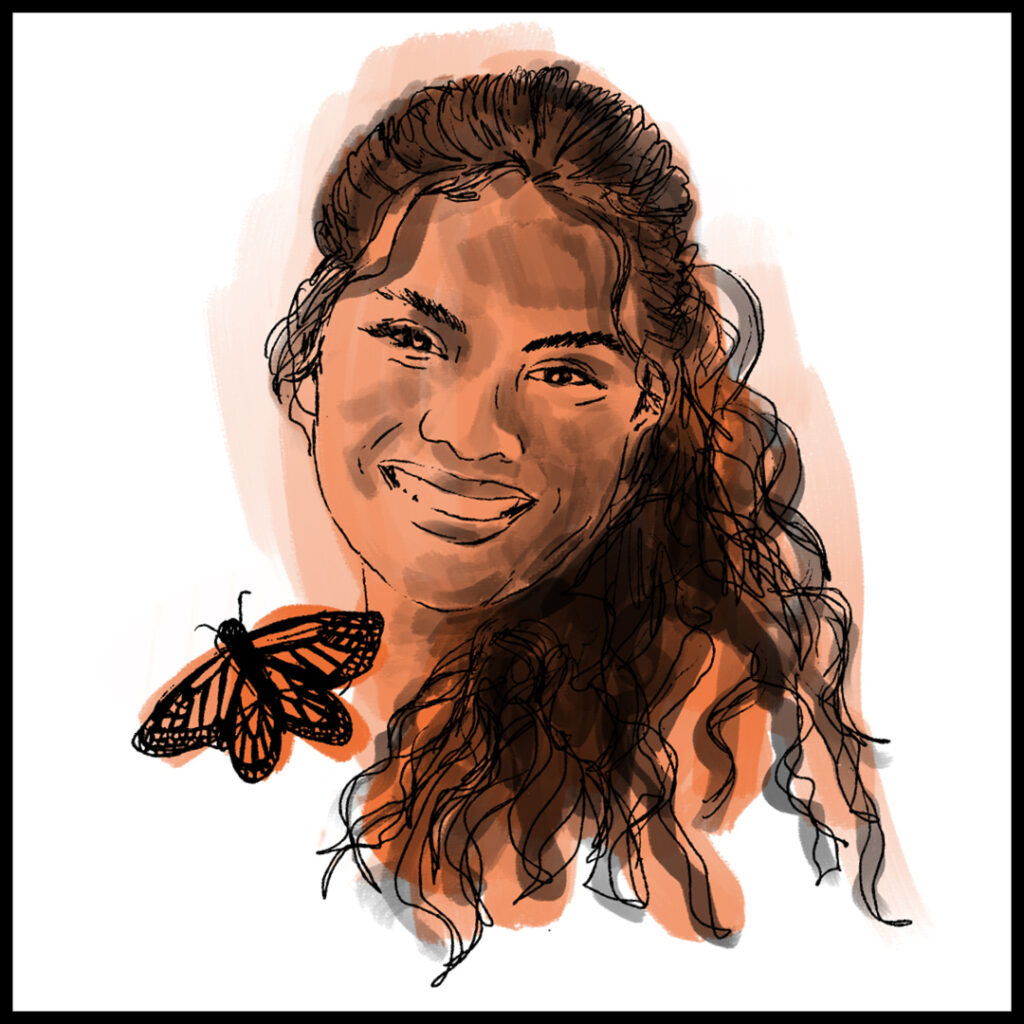
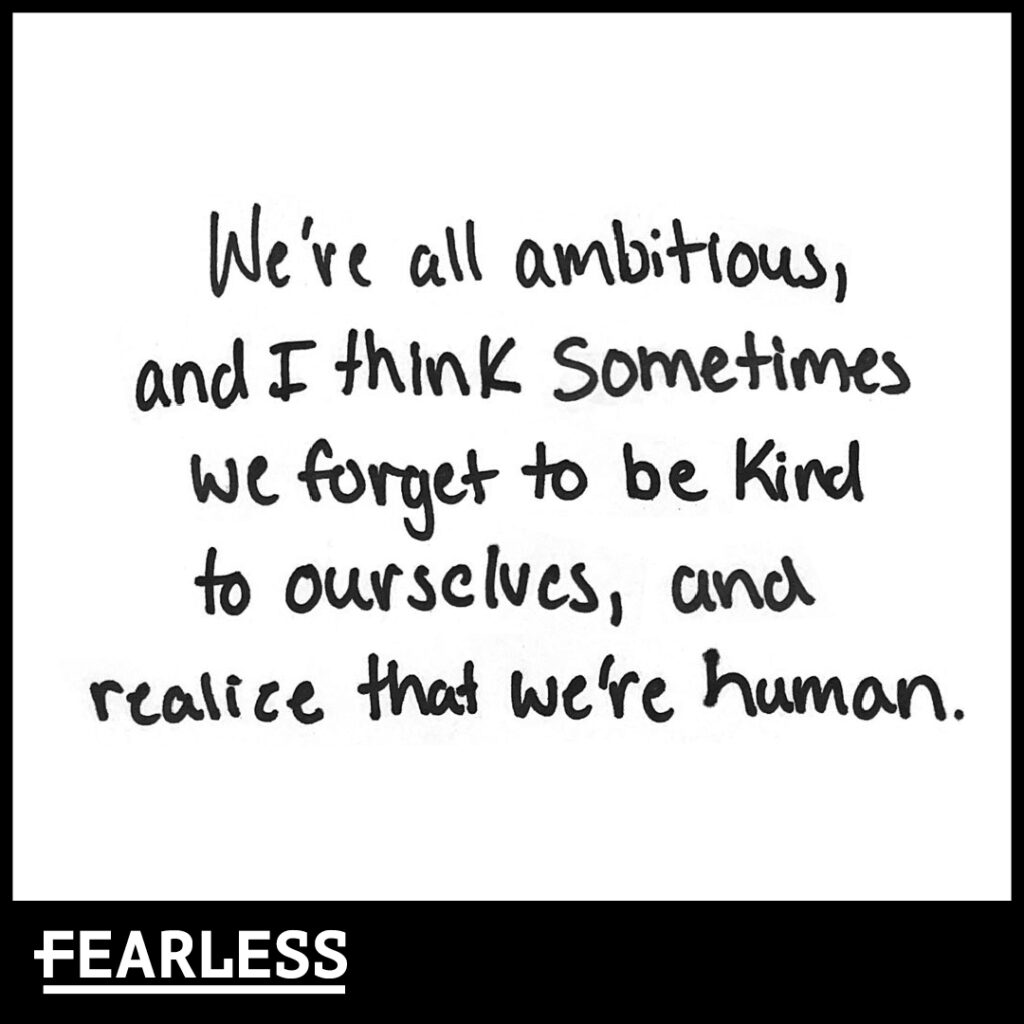
When I was starting my pathway to my associate’s degree, I was balancing extracurriculars, high school classes, college classes, a job, things like that. And in a Hispanic family, they demand a lot of your time and efforts, too. I was just feeling like I was being pulled in a million different ways. I felt like I needed to be perfect in everything. I realized that I can do it all, but I can’t expect perfection from myself.
A big factor that has helped me maintain such a crazy schedule and stability is my family, my parents especially. If I’m ever stressed out, I can talk to them about it. But also, I’ve learned that I have to take care of myself by myself. I’m out of high school now, and I will soon be living by myself, so I’ve realized that I have to be able to maintain my health because health comes first. You can’t perform your best in class if you’re not sleeping enough, if you’re not eating enough — that’s a big thing for me.
I’ll be living by myself in the spring, and I’m actually kind of excited for it. I’m excited to enter this new stage of my life. I’ve been mostly independent for some time now, but it’s just that next step of living by myself, creating my own environments and what I want for myself.
I’m super young, so right now, I still want to explore what’s out there. My ultimate dream is to be a nurse practitioner. I never really thought of anything beyond that. I don’t have an ideal state or city where I would want to live yet.
My advice for other people is to always try something new. Even if you’re afraid, even though you may not feel welcomed into certain spaces — don’t be afraid to take up space. During the legislative job shadow, I was the only student there job shadowing. I felt like an intruder, listening into these conversations. It just felt like I wasn’t supposed to be there. It felt so right and so wrong at the same time. Another instance of this is when I started my associate’s degree at a young age. I was, I think, 15 or 16 years old, in a college speech class, and I was the only one. I remember my peers asking me, “How old are you?” And when I told them, there’s this kind of shift in the room. Either they’re kind of impressed, or either they’re like, “What?” In that moment, you’ve just got to show up for yourself and not care what other people think.
For me, I always think, “I’m in this room with super successful people. That means I’m doing something right.” But I’m also aware that I’m here due to the connections I’ve made with others. I bring something to the conversation. I’m aware I’m here because I was invited. I was motivated by that.
